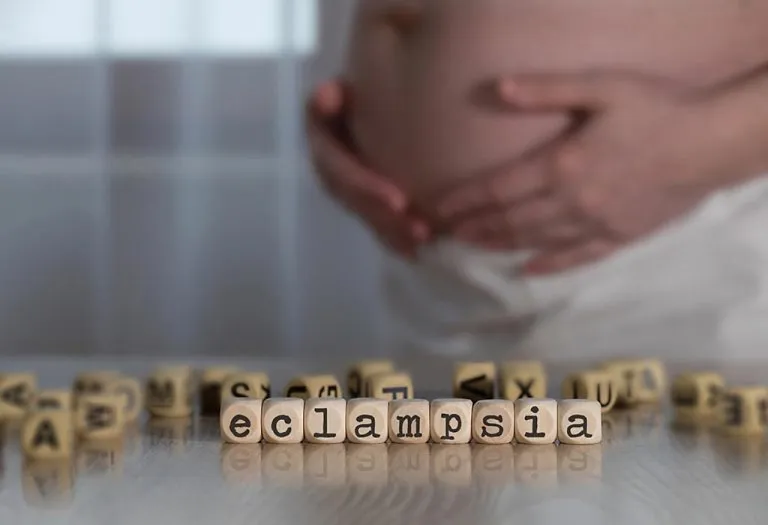Group B Streptococcus (GBS) in Pregnancy: Causes, Symptoms, & Prevention
Group B Streptococcus (GBS) is a harmless commensal bacterium commonly found in the gastrointestinal and genital tracts of healthy adults. While it provides no benefit or harm to humans, GBS can cause infections in individuals with weakened immune systems, including the elderly and newborns, and may rarely lead to severe complications. Pregnant women often carry GBS and can transmit it to their infants during delivery. However, in most cases, this does not result in significant health issues. Though typically benign, GBS infections require attention in vulnerable populations to prevent potential adverse outcomes. Read on to learn more about Group B Streptococcus in pregnancy.
What Is Group B Streptococcus?
The Group B Streptococcus which is also known as group b strep is one of the many different types of bacteria that thrive in our bodies in the digestive, urinary and reproductive tracts (1). About a third of the population has GBS in their intestines without being aware of it as these streptococcus bacteria come and go out of our systems without causing any health effects. It is estimated that 25% of mothers-to-be have GBS bacteria in their vaginal tract.
How Common it Is?
What Are the Causes of Group B Strep Infection in Newborns?
There are a few ways through which a mother who is GBS colonised can transmit the bacteria to her newborn. About 50% of the mothers pass on the bacteria to their babies during pregnancy and vaginal birth. However, a GBS infection differs from the normal presence of GBS in the human gastrointestinal tract. Some of the causes of GBS infection in pregnancy are:
- A GBS urinary tract infection during pregnancy
- Membrane rupture of labour before 37 weeks of gestation
- Membrane rupture prior to 18 hours before delivery of infected mothers
- Testing positive for GBS colonisation at 35-37 weeks
- Baby is born prematurely
- Infection of the placental tissue and amniotic fluid
How Someone Can Get Infected By Group B Streptococcus?
The group B streptococcal bacteria are a naturally occurring microbe in the bodies of people, and their infection is not a sexually transmitted disease. These bacterial colonies come and go without showing any symptoms. Also, why some people develop serious infections with this bacteria is unknown (5). However, certain medical conditions that impair the immune system such as liver disease, cancer, diabetes and HIV infection are known to increase the risks. People older than 65 who live in nursing homes are also known to get infected by the group B strep (4).
Diagnosing Group B Strep
Group B strep pregnancy screening is an important step to ensure the safety of both the mother and baby during delivery. Pregnant women should get a group b strep test between 35 and 37 weeks of pregnancy as this is the period of highest risk to the newborn. The procedure for testing involves taking a vaginal and a rectal swab and sending it to a lab for a culture test. A positive result means that you carry the GBS bacteria, but it doesn’t mean you are ill or that the baby will get affected. It only means that potential risk of infection to the newborn exists and steps can be taken to protect the baby (2).
If you are a GBS positive mother and suspect that your baby might have an infection, a sample of the baby’s spinal fluid or blood can be sent to a lab for analysis. A positive diagnosis is given when GBS bacteria are grown from cultures of the swab samples. The results may take two to three days to arrive as the culture takes time to grow.
Group B Streptococcus Infection in Infants and Newborns
The group b streptococcus in newborns and infants come under two main categories as explained below:
- Early-onset: The common type of infection, the early onset of group B strep occurs anywhere from the first 24 hours to the first week of life. According to studies 90% of babies who get an early onset of the infection show signs of sickness within the first 24 hours (3).
- Late-onset: This accounts for half of the cases where the GBS infection baby shows symptoms from the first week to the first three months of life, the symptoms for both the cases being more or less the same involving fever, difficulty in feeding, unusual body temperatures etc.
Symptoms of Group B Streptococcus
The Strep B symptoms in pregnancy can show up anytime from the first 24 hours to up to a week or even three months later. Whether you were tested positive for GBS or not, it is important to monitor the baby for any unusual behaviour or changes such as poor feeding, vomiting, fever, extreme irritability etc.

The symptoms of streptococcus bacteria infection for both early and late onset are almost similar. The symptoms include (2):
- Difficulty in breathing
- Fever
- Difficulty feeding
- Lethargy; where the baby is hard to wake up
- Unusual limpness
- Extreme stiffness
- Unusual irritability
- Unstable body temperatures
- Seizures
Group B Strep Treatment for Mothers & Babies
Group B strep in infants and mothers can be treated effectively using antibiotics. If tested positive for the bacteria, the GBS in pregnancy treatment includes the mother being put on a dose of antibiotics a few hours before going into labour. Ideally, the antibiotics are given four hours before giving birth via a drip into a vein in the back of the hand. In the case of infants, several factors determine the administration of antibiotics. The factors are:
- If both the baby and the mother are healthy and the mother had full treatments with antibiotics during labour, the baby won’t need them.
- If the mother didn’t receive antibiotics during labour, the baby can be started a course until it is given an all-clear.
- If the baby displays symptoms of a GBS infection, it will be started on antibiotics immediately.
How Can Group B Strep Be Prevented During Pregnancy?
There is no way to prevent infection by the GBS bacteria during pregnancy and currently there are no vaccines available for it either. The only effective way to lower the risk factor is to get tested for GBS between 35 to 37 weeks and get antibiotics administered before labour on the doctor’s advice. Women who test positive for GBS and get antibiotics during labour have only a 1 in 4000 chance of having a baby with GBS infection, while those who do not get antibiotics have a 1 in 200 chance of the same.
Risks of GBS Bacteria for Mother and Baby
GBS bacteria cause the group B strep disease in infants which, for both early and late onset, can have long term repercussions. The infection most commonly causes sepsis (Infection of the blood stream) and pneumonia (infection and inflammation of the lungs). The highest risk comes from meningitis (infection of the fluid that surrounds the brain), as babies who survive meningitis can have long term problems such as deafness, blindness and developmental disorders.
In pregnant women, GBS infection can cause urinary tract infection, infection in the uterus and placenta, preterm delivery, miscarriages and foetal death (7).
What Can Be the Complications of Taking Antibiotics?
One of the most commonly administered group B streptococcus antibiotics is penicillin. Penicillin works well for most people but some can experience side effects such as rashes, diarrhoea and nausea. Some women can have a severe allergic reaction (anaphylaxis) to penicillin which can be fatal in extremely rare cases (about 1 in 100,000). In cases of allergy to penicillin, alternative group b strep antibiotics during labour such as clindamycin might be administered (5).

The antibiotics can upset the balance of healthy bacteria in the baby’s tummy and hence doctors are extra cautious about administering medication to babies. Some prefer to wait for 12 hours or more before starting a course of antibiotics in case it is necessary.
Are GBS Tests Accurate?
A lab culture test for GBS can accurately determine the presence of an infection but the results take a few days to become available. Some hospitals offer rapid GBS tests that can be done during labour and the results are delivered in an hour or more, but the accuracy of the rapid tests are low. The best way is to screen for GBS between 35 to 37 weeks.
What if Your Test for Group B Strep Is Positive?
Testing positive for group B strep while pregnant doesn’t necessarily mean that your baby will catch the infection too. You may test positive early on in the pregnancy and negative toward the end and vice-versa. If you do test positive toward the end of your pregnancy, it’s best to discuss the birth plan and measures to be taken to protect the baby with your doctor (6).
FAQs
1. Can GBS recur in subsequent pregnancies?
Yes, if a woman carries GBS during one pregnancy, there’s a chance she may carry it again in future pregnancies. Screening is recommended during each pregnancy, regardless of previous results.
2. Are there alternative treatments to antibiotics for GBS?
Currently, antibiotics during labour are the most effective prevention method. No alternative treatments, such as probiotics or herbal remedies, have been proven as substitutes for antibiotic use in preventing GBS transmission.
3. Can men carry or transmit GBS?
Yes, men can carry GBS in their gastrointestinal tract, but it is not typically a health concern for them. GBS is not spread through casual contact or sexual activity (1).
GBS and pregnancy are closely monitored to prevent infections that could affect the health of both the mother and the newborn. Always ensure that you get yourself screened for different illnesses or diseases during your pregnancy. A Group B strep might not be harmful to your baby, but it is always better to be safe and get yourself the best care possible.
References/Resources:
1. Group B Strep and Pregnancy; American College of Obstetricians and Gynecologists; https://www.acog.org/womens-health/faqs/group-b-strep-and-pregnancy
2. Group B Strep and Pregnancy; Nemours KidsHealth; https://kidshealth.org/en/parents/groupb.html
3. Gonçalves. B. P, Procter. S. R, Paul. P, et al.; Group B streptococcus infection during pregnancy and infancy: estimates of regional and global burden; PubMed Central; https://pmc.ncbi.nlm.nih.gov/articles/PMC9090904/
4. Group B strep; NHS; https://www.nhs.uk/conditions/group-b-strep/
5. Group B strep infection; March of Dimes; https://www.marchofdimes.org/find-support/topics/planning-baby/group-b-strep-infection
6. Prevention of Group B Streptococcal Early-Onset Disease in Newborns; American College of Obstetricians and Gynecologists; https://www.acog.org/clinical/clinical-guidance/committee-opinion/articles/2020/02/prevention-of-group-b-streptococcal-early-onset-disease-in-newborns
7. Group B Streptococcus Infection in Babies; Stanford Medicine Children’s Health; https://www.stanfordchildrens.org/en/topic/default?id=group-b-streptococcus-infection-in-babies-90-P02363
8. Group B Strep Pregnancy; Cleveland Clinic; https://my.clevelandclinic.org/health/diseases/11045-group-b-streptococcus–pregnancy
Also Read:
Cervical Length during Pregnancy
Calcification of Placenta in Pregnancy
Common Vaginal Infections during Pregnancy
Infections That Can Affect Your Pregnancy
Was This Article Helpful?
Parenting is a huge responsibility, for you as a caregiver, but also for us as a parenting content platform. We understand that and take our responsibility of creating credible content seriously. FirstCry Parenting articles are written and published only after extensive research using factually sound references to deliver quality content that is accurate, validated by experts, and completely reliable. To understand how we go about creating content that is credible, read our editorial policy here.


































